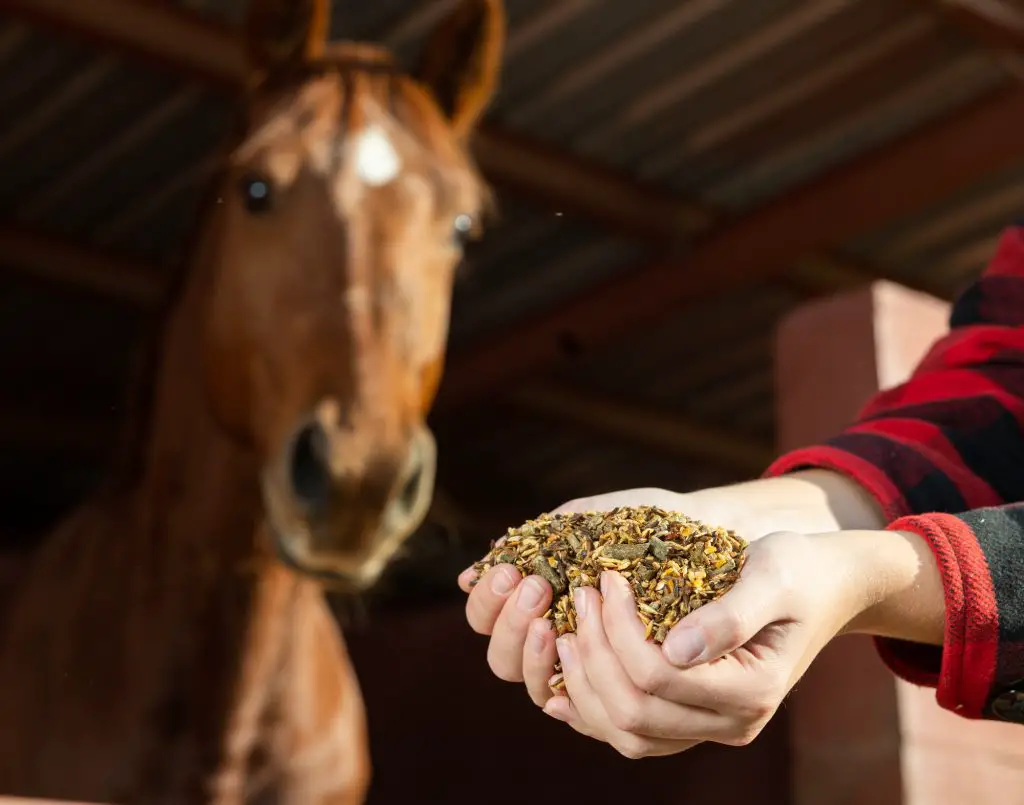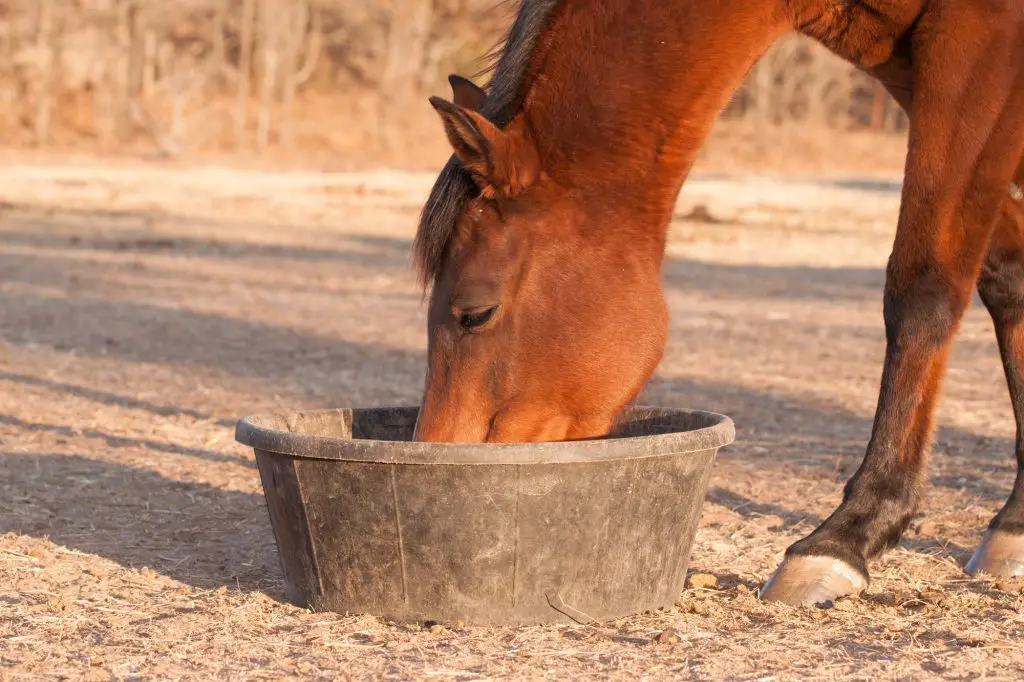Like all species, horses have specific dietary needs. They’re primarily herbivores with a digestive system designed to consume fiber-rich diets. Horses typically spend most of their day grazing, absorbing a steady flow of nutrients.
Horses require several nutrients for optimal health: proteins, carbohydrates, fats, vitamins, and minerals. A balanced diet in these areas can promote a healthy digestive system, strong muscles and bones, and robust immune function. Below are the essentials of basic horse care and nutrition:
High-Quality Forage
Forage, comprising hay, grass, and other plant material, is the cornerstone of a horse’s diet. This mainstay food source provides essential fiber needed for a horse to sustain a healthy digestive system and delivers a bounty of vital vitamins and minerals crucial for overall health.
- Fiber Source: The equine’s digestive system is specifically designed to process high-fiber diets. They can naturally meet their fiber requirement by consuming high-quality forage, which reduces the risk of digestive disorders such as colic or ulcers.
- Keeps The Horse Occupied: Horses are grazing animals and like to feed throughout the day. Having access to forage can keep them busy, preventing boredom and associated behavioral issues.
- Weight Management: Forage is lower in calories than concentrated feeds like grains. This makes it ideal for managing the weight of horses, particularly those prone to obesity or metabolic diseases.
Ensure that the quality forage is fresh, aromatic, and free from dust, mold, and other health-damaging contaminants. With this focus on quality, forage becomes an unbeatable asset in an equine’s diet, crucial in ensuring their overall well-being. This becomes especially important when aiming to minimize your horse’s anxiety.

Water
Water, essential for digestion, nutrient absorption, and body temperature regulation, is fundamental to a horse’s health. Given that horses can consume up to 10 gallons of water daily, it’s evident that constant access to fresh, clean water is essential. Dehydration in horses can lead to serious issues like colic and kidney problems.
Various factors, such as diet, activity level, age, and environmental conditions, can influence the quantity of water a horse requires. For example, horses may consume more water in warmer climates, during periods of intense exercise, or when eating more dry forage like hay.
Carbohydrates
Carbohydrates, primarily from hay, pasture, and grains, serve as the primary energy source in a horse’s diet. They come in two types:
- Structural Carbohydrates: Equines’ hindguts slowly digest structural carbohydrates, which are typically found in the fiber of plants. This provides a steady energy release and helps keep the digestive system healthy.
- Non-Structural Carbohydrates: Starches and sugars are excellent sources of non-structural carbohydrates. They’re quickly digested, supplying rapid energy.
When feeding your horses, ensuring a balanced carbohydrate intake is crucial. This is because overfeeding, especially with non-structural carbs, may result in digestive disorders and other health complications, like laminitis.
Fats
In addition to carbohydrates, fats provide a dense source of energy. Adding fats to your horse’s diet can be beneficial, especially for high-performance horses that need extra calories.
Fats in a horse’s diet are derived from a variety of sources, mainly oilseeds like flaxseed and sunflower seeds, and also rice bran. They are highly digestible and can be efficiently used by the horse’s body to meet energy demands. Beyond providing energy, fats also aid in the absorption of specific vitamins and contribute to a shiny, healthy coat.

Vitamins And Minerals
While required in small amounts, vitamins and minerals play a critical role in various bodily functions. They’re involved in everything from bone structure to nerve function to metabolism. For instance, calcium and phosphorus are important for bone health, while vitamin A is necessary for good vision and a healthy immune system.
Many of these vitamins and minerals are naturally found in common horse feeds, like forage and grains. But certain ones might be lacking depending on the quality of the feed and soil in which the forage was grown. That’s why it’s sometimes necessary to provide your horse with supplements to ensure it receives all the necessary vitamins and minerals for optimal health.
Proteins
Composed of amino acids – the body’s basic building blocks – proteins are vital for horses as these support growth and tissue repair. While some of these amino acids can be produced by the horse’s body, others – known as essential amino acids – must be obtained from the diet.
Young horses in their growth phase, pregnant mares, and horses in heavy work often require a higher amount of protein in their diet. If your horse falls into any of these categories, an adjustment in protein levels may be necessary. But as with other nutrients, you should always balance protein in your equine’s diet to prevent health problems, such as kidney disease or laminitis.
Conclusion
Understanding the essentials of horse nutrition might seem complex. However, with the proper knowledge, it’s entirely achievable. Remember, the goal is not only to feed your horse but to nourish it. By understanding and implementing these nutritional essentials, you’re not just feeding your horse—you’re providing it the foundation for a healthier, happier, and more vibrant life.



